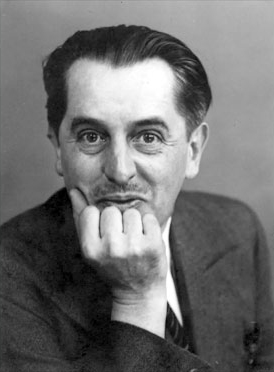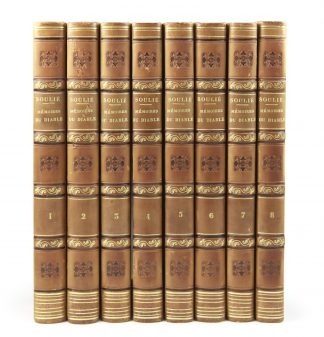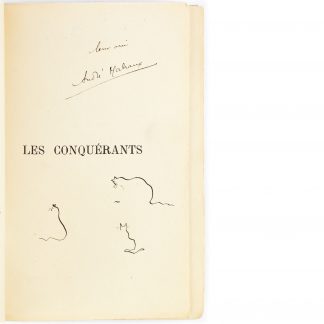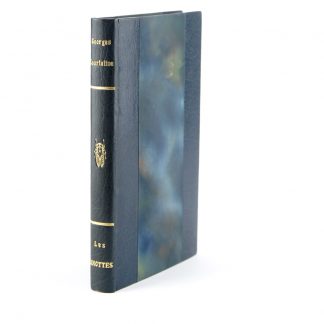Description
7 signed autograph letters, 20 pages (17 pages in-8, 3 pages in-12), written between 1949 and 1952
Important unpublished correspondent addressed to the critic Marcel Thiebaut before the publication of what Paulhan then called the second volume of the Flowers of Tarbes.
In order to respond to Marcel Thiebaut's criticisms, Paulhan explains his work point by point, notably in two letters written one day apart, which, over 13 pages, detail the thesis of the Flowers of Tarbes and then evokes Sade, Fénéon and the critical of NRF :
" Your objection is serious and - as far as I can judge - perfectly accurate. ...] I wonder, in Volume I of Flowers, what are the observations and the laws - what is the general conception of language - on which modern literature is based. I find out:
(a) That these observations (and the laws that follow) are not worth much: that they are based on illusions.
(b) That these illusions are, however, pragmatic; that, in the absence of a right conception, they allow for effective (literary) conduct.
(c) That this conduct could, however, be made even more effective by a set of rules - by a method, which is very similar to what has traditionally been called rhetoric[…]
I wonder in Volume II of Flowers what (from a simple scientific: rationalist point of view) the rules and precepts - what the general conception of language is worth - on which rhetoric was once based (and on which it tries to be based, as well, among modern advocates of rhetoric).[…]
Here I discover (or at least I think I do) :
a) That these laws, rules and precepts are not worth much; that they betray little more than the play of rather crude illusions.
I (tentatively) call these illusions: projection and inversion. Curiously enough, they are exactly the same as the illusions played out by terror, except that the terms are inverted: the word there takes the place of the idea, the idea the place of the word. But the form and the play of the illusion have not changed.
b) That the arguments of the rhetoric (old and new) are no less pungent, pressing, that they regularly throw us into a certain state of reflection. In short, if they are not true, they are effective.
(c) That this effectiveness could nevertheless be increased by a general attitude of mind, not a set of rules and methods - and precisely by a kind of mistrust and constant provocation - which strongly resembles what we used to call terror in the first place.
Thus ends the second part of Flowers: on a failure (a little ridiculous). Whoever exactly wants to think about Terror, and pushes it to its logical consequences, is led to adopt rhetoric. Yes, but whoever wants exactly to think rhetoric, and forces it to coherence, is led to Terror. This is endless: properly despairing. Unless...
Unless we are given to dominate Terror and Rhetoric (and as if flying over them): to form from language and expression a knowledge, no longer illusory and pragmatic, but truthful. Now, at least now we know under what conditions - and precisely at what price of intelligence - we can form this knowledge.[…]
Sade It seems to me that his situation becomes clearer as soon as one considers that the sadist is also a masochist. And the haunting he has brought to the 20th century, if we go so far as to admit that we are looking - in a way, in spite of ourselves - for that metaphysical state for whom sadism and masochism are one and the same thing. […]
Then in a letter dated 8 but 1952 about Letter to the directors of the Resistance:
...but thank you so much for your column. I'm afraid you're right: I may have been wrong to call "Letter to ... resistance fighters"It is a small book, in which it is not much more than the Purifiers (-but the Purifiers, as we Resistance fighters have accepted, tolerated, and to a great extent, called them). It does not matter. I should have enlightened my lantern a little better). […]
My excuse - it's a hateful excuse - would perhaps be that my little book, if it had been entitled: "letter to the directors of the Purification"no one would have read it. What I have proof of this is that in 1952 I merely repeated what I had said so well in 1944, 1945 and 1946. Only, no one listened to me then. Maybe you have to cheat a little bit to be heard. That would be worrisome.
Beautiful unpublished set, which sheds light on a large part of Paulhan's work and shows the care he took in receiving and understanding it.



